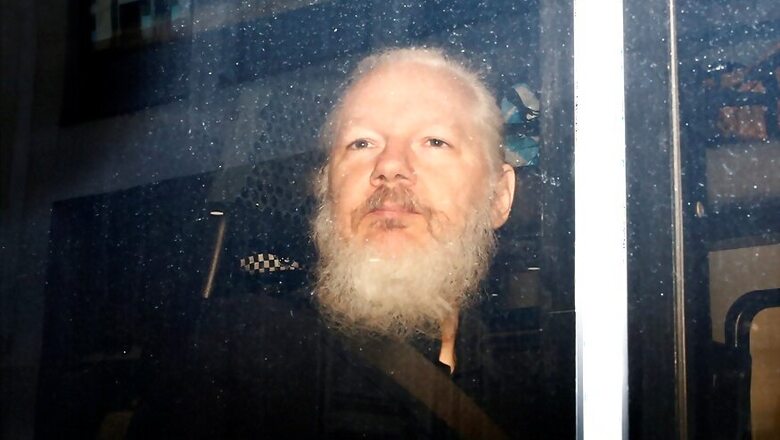
views
London: WikiLeaks founder Julian Assange repeatedly violated his asylum conditions and tried to use the Ecuadorian embassy in London as a centre for spying, Ecuador's President Lenin Moreno told Britain's Guardian newspaper.
London police dragged Assange out of the embassy on Thursday after his seven-year asylum was revoked, paving the way for his extradition to the United States for one of the biggest ever leaks of classified information.
Assange's relationship with his hosts collapsed after Ecuador accused him of leaking information about Moreno's personal life.
Moreno denied to the Guardian that he had acted as a reprisal for the way in which documents about his family had been leaked. He said he regretted that Assange had used the embassy to interfere in other countries' democracies.
"Any attempt to destabilise is a reprehensible act for Ecuador because we are a sovereign nation and respectful of the politics of each country," Moreno told the Guardian by email.
"We cannot allow our house, the house that opened its doors, to become a centre for spying,” the Guardian quoted Moreno as saying.
Supporters of Assange said Ecuador had betrayed him at the behest of Washington, that the ending of his asylum was illegal and that it marked a dark moment for press freedom.
Indian journalists and academicians said that Assange's arrest was a "strike at the heart of journalism.
"The journalism WikiLeaks and its Editor-in-Chief stand for is a journalism of outrage — outrage against the injustices and atrocities that take place round the world — but always with an eye to factuality, substantiation, and precision. We strongly condemn his arrest," the signatories, including The Hindu's N Ram, writer Arundhati Roy and historian Romila Thapar, said in a statement.
"Charging Assange with conspiracy bypasses the protection of law that exists for the press internationally — including the First Amendment in the US. This indictment strikes at the very heart of journalism and creates a precedent to attack the press anywhere. If given a free pass through the acquiescence or silence of the journalistic profession, this assault will create a new kind of chill for investigative journalism everywhere," the statement further read.
(With input from Reuters)




















Comments
0 comment